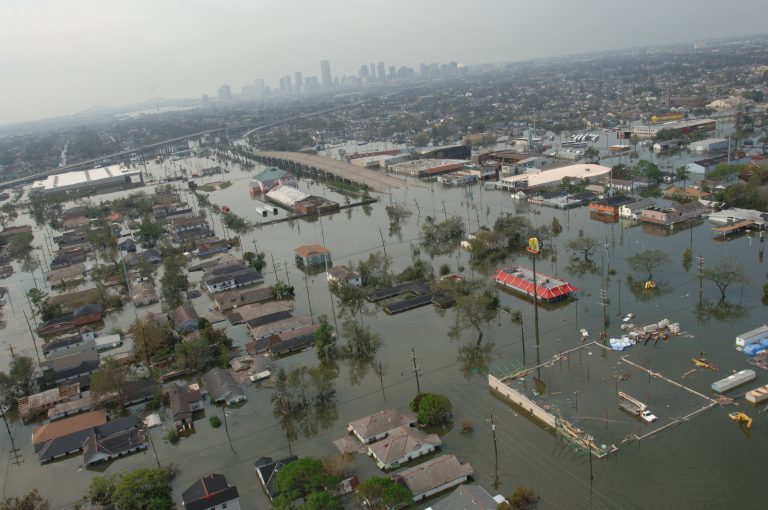Published on December 2, 2021

Over the past century, the Earth’s average temperature has risen by 1.5 degrees Fahrenheit. Although it seems like a negligible amount, this global warming is out of the ordinary in the planet’s recent history, causing dramatic shifts in climate patterns and weather. Beyond that, scientists predict it will get even worse in the years to come.
Every human being on the planet is — and will continue to be — affected by these massive changes to our collective living environment. And some experts consider climate change to be “the biggest health threat facing humanity.” According to a report from the World Health Organization, researchers have projected that it may cause as many as 250,000 additional health-related deaths each year between 2030 and 2050. Failing to mitigate climate change and implement long-term solutions puts everyone at risk for a number of climate-sensitive health impacts.
Changes in the climate won’t only affect an individual’s physical health; extreme weather events have mental health consequences, too. Additionally, it will become increasingly common for people to be forced to leave their homes permanently due to sea level rise, says Dubrow, which may exacerbate mental distress.
“People who’ve directly experienced a climate-fueled disaster often experience chronic anxiety and depression in the aftermath, or post traumatic stress, substance abuse, suicide or suicidal thoughts, sleep disorders, and more,” says Jennifer Atkinson, PhD, associate professor of environmental humanities at the University of Washington. “Not surprisingly, poor and marginalized communities and communities of color are suffering the heaviest climate impacts and therefore the most dramatic emotional toll.”
For example, about 1 in 3 people who were affected by Hurricane Katrina in 2005 exhibited symptoms of post-traumatic stress disorder (PTSD), not only in the immediate aftermath of the disaster, but even four and twelve years after it. More recently, the severe bushfires in Australia were associated with increased symptoms of anxiety and depression as well. The impacts of climate change are expected to be more severe in developing countries, and for marginalized communities who suffer greater harm from climate hazards, it’s even more challenging to recover from disasters.
However, “you don’t have to be a survivor of a full-blown climate disaster to suffer from anxiety or grief over the climate crisis,” says Atkinson. People can feel anxious about the impact of climate change or feel a sense of powerlessness arising from an immense, existential threat. For Indigenous peoples who have a close relationship with the environment, climate change is not only a huge threat to their livelihoods, but also their cultures, identities, and ways of life. “Different people have different levels of vulnerability or security,” says Atkinson. “There are vast differences in the way our climate crisis impacts mental health when we compare the global north to more vulnerable communities across the global south, or look at differences across racial, socio-economic, ethnic, and age groups.”
Continue reading at Discover Magazine.
Originally written by Carla Delgado for Discover Magazine.